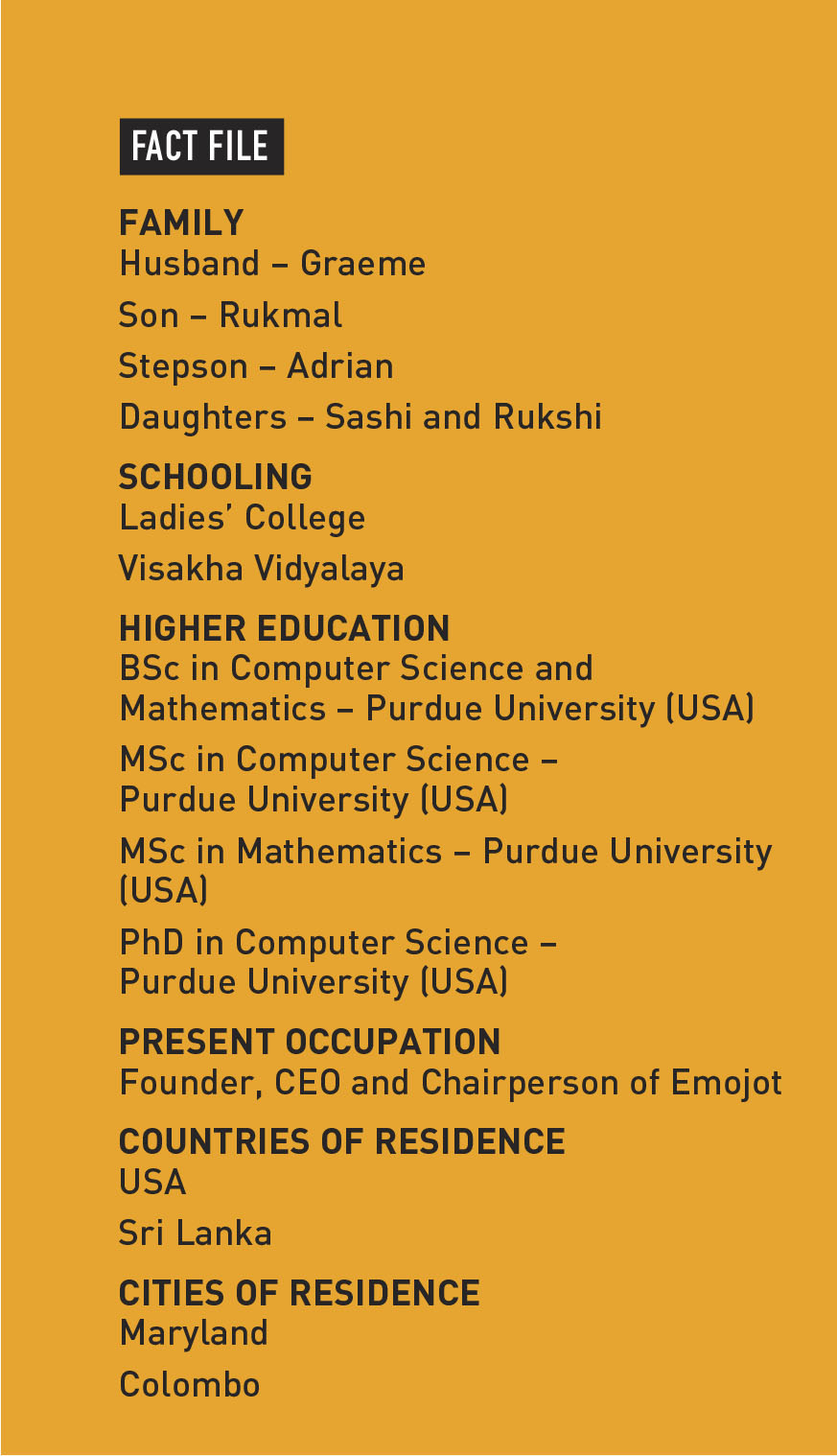Dr. Shahani Markus
Empowerment through tech

Q: What was the inspiration behind founding Emojot? And how has it transformed customer interaction?
A: The inspiration behind founding Emojot was to demonstrate that Sri Lankan university students should consider launching product businesses – ideally as spin-offs from their final year projects – rather than taking the more conventional route of joining established companies.
Emojot was born from such a project: a research driven initiative focussed on understanding contextual emotions in real time to gauge how people perceive situations. This naturally evolved into a product aimed at helping businesses better understand and respond to customer interactions.
As with many startups, our ideas pivoted and matured over time; and today, Emojot offers a suite of AI powered solutions that empower businesses to grow through customer centric digital transformation.
Q: How do you see the role of AI and real-time feedback systems in shaping the future of customer experience?
A: AI is democratising access to customer insights, allowing SMEs to orchestrate and personalise experiences with a level of sophistication once limited to large enterprises.
Emojot’s mission is to make this kind of advanced capability accessible through cost-effective and rapidly deployable AI powered solutions for customer centric digital transformation.
AI powered feedback systems are reshaping how businesses understand and respond to customers, enabling a shift from reactive issue handling to proactive engagement and continuous improvement.
Q: In what ways did your experience as the founding CTO of Auxenta and head of engineering at Virtusa Sri Lanka shape your leadership approach in the tech industry?
A: I’ve always gravitated toward a leadership style grounded in stewardship, empowerment and collaboration– often referred to as ‘servant leadership.’
My time at Virtusa and Auxenta (now known as 1BillionTech) was incredibly formative, not only because of the roles I held but since I was fortunate to work with brilliant minds and outstanding teams. Those experiences taught me the value of building trust, fostering autonomy and genuinely investing in the success of others.
They also reinforced in me that leadership is as much about listening and learning, as it is about guiding and executing – and I continue to do both.
Q: As a pioneer of the Sahana disaster management system, what role do you see technology playing in improving disaster response and humanitarian efforts globally?
A: The Sahana system holds a special place in the history of humanitarian tech as the world’s first open-source disaster management system, conceived and developed in Sri Lanka days after the 2004 tsunami.
While my role was early stage and brief, it was part of a much larger open-source movement involving hundreds of passionate individuals. Technology – including software, robotics and drones – will continue to play a vital role in improving disaster response.
The challenge is ensuring equitable access to these innovations – especially for less affluent nations. Open-source and low cost models can bridge that gap, enabling global resilience and collaboration.
Q: How do you view the state of digital transformation in Sri Lanka? And where do you see the country heading in terms of tech innovation?
A: It’s a nuanced picture – Sri Lanka has seen inspiring progress but also faces clear challenges.
There is a need to expand digital transformation – especially among SMEs, which are the backbone of the economy. The next wave of innovation must be AI driven.
Sri Lanka has the potential to become a regional leader in digital innovation if we shift mindsets, back talent, nurture local startups and strengthen public-private partnerships (PPPs).

Q: What advice would you offer to aspiring female tech entrepreneurs looking to break into a male dominated industry?
A: If you have the passion, courage and belief in yourself, take the leap!
The tech entrepreneurship journey is an exhilarating roller coaster. While breakout successes might be rare, the personal growth and learnings are incredibly rewarding.
Embrace the journey with clarity and courage; expect surprises and build your resilience to adapt quickly; surround yourself with mentors and peers who lift you up; and most importantly, remember that your unique perspective is needed.
Q: In your opinion, what are the next big trends in IT – and how should companies prepare to capitalise on them?
A: AI is the defining trend in IT today. Companies should embrace AI across workflows – from automation to predictive analytics – while promoting responsible use.
Upskilling teams and embedding AI into decision making will be essential. Success will depend on balancing innovation with security, ethics and data responsibility.


